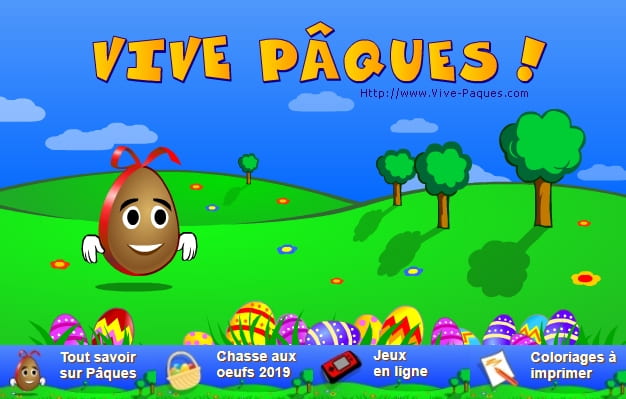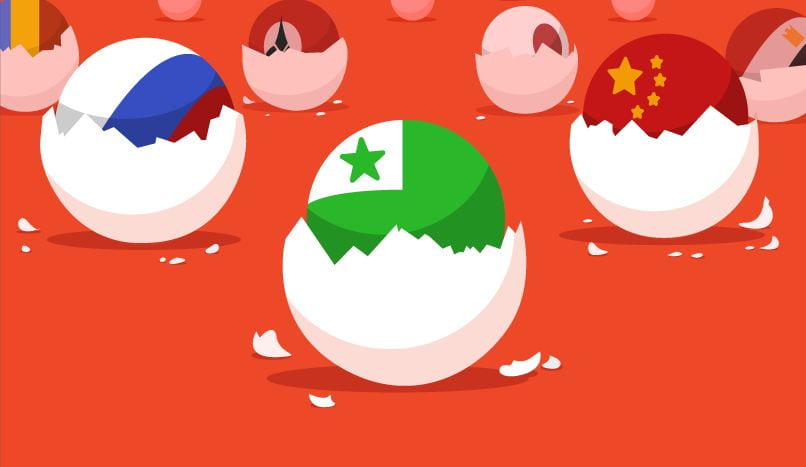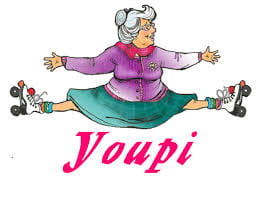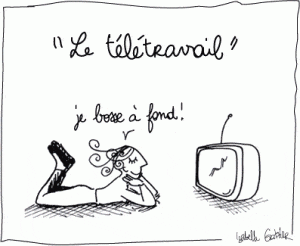 Chers élèves,
Chers élèves,
“Bonne rentrée!” I hope you had a lovely Easter break. I would love to hear from you all and to know if any of you have attempted the Easter activities I posted on the website. I am therefore inviting you to join our weekly live classe via the Zoom platform. I have sent you the details (day, time and link to the meeting) via Hangouts and it is also posted in your google classroom.
So as I mentioned to your parents in an email yesterday, the work I am assigning you is to be done for the Monday of each week. I would however advise to do your assignment following your school timetable. I have therefore organised the assignment under each day of the week where you have a French class. At the moment you have the work for today and tomorrow, the rest of the week will come very soon. If this does not suit, feel free to pick another time as long as it does not interfere with your other timetabled classes and as long as the work is finished before next Monday.
Make also sure to come on Hangouts at least once every day to get up to date info about the French lessons/assignments, to ask your questions or even to just say “Bonjour!”.
I wish you all the very best for this last straight line before the Summer holidays and “A bientôt!”
1st years
Lundi:
Check out the vocabulary of the following video: https://youtu.be/j-cA7DacVIk. Feel free to take some notes and study the vocabulary. Once you think you know most of it, go ahead and attempt the following kahoot: https://kahoot.it/challenge/07751050?challenge-id=e79153eb-100d-4871-b49f-21da1a1866a1_1587333177409. Make sure to use your name when completing the Kahoot so I know who has completed the assignment.
Mardi:
In our current unit we have started to learn vocabulary about the house. So here is our Question 11. Copy it into your French copy.
Question 11 : Décris ta maison – Describe your house.
Réponse 11 : Ma maison est petite/ de taille moyenne/ grande. Elle est en ville / à la campagne / au bord de la mer. Il y a trois chambres, une salle de bain, une cuisine et une salle de séjour. – My house is small/ average size / big. It is situated in the city / in the countryside / by the sea side. There are three bedrooms, a bathroom, a kitchen and a sitting room.
So now it’s your turn, can you create your own answers ? Go onto google classroom in the « Questions pour l’oral » assignment. This assignment contains a file with all the Oral questions we have seen so far (Question 1 to question 11). Your job (for today and to be finished by nex week) is to fill up the « Ma réponse (first draft) » column with your own answer to each question. I will then be able to help you and give you some pointers to help you do your own correction.
Mercredi (online lesson):
Les verbes en IR avec Jeremy Kong:
Online exercises:
https://storage.canalblog.com/30/14/356863/18339330.htm
https://highered.mheducation.com/sites/0073535443/student_view0/chapitre4/grammaire_3.html
DM: Copy “-IR” verbs page 168 in class copy (with negative and interrogative form) + two orange boxes p169 + finish the online exercises
Jeudi:
Copy the vocab p143 + listening p143 + blue box p144 + listening p144
Extra:
Practice Duolingo for 10 minutes everyday or for 20 minutes every two days. Remember you can do so with the Duolingo App or from any laptop/computer.
Do the following activity (or activities). A1 level activities are for beginners, A2 are a little harder . There are four exercises per activity, explanations are at the top and the correction of each exercise is given to you once you click “Ok” at the end. This exercise is a good opportunity to widen your vocabulary by adding some words you find useful in your copy.
Niveau débutant – Nous faisons connaisance (niveau A1)
Niveau élémentaire – Vo, village laboratoire en Vénétie (niveau A2)
2nd years:
Lundi:
Check out the vocabulary of the following video: https://youtu.be/j-cA7DacVIk. Feel free to take some notes and study the vocabulary. Once you think you know most of it, go ahead and attempt the following kahoot: https://kahoot.it/challenge/07751050?challenge-id=e79153eb-100d-4871-b49f-21da1a1866a1_1587333177409. Make sure to use your name when completing the Kahoot so I know who has completed the assignment.
Mardi:
Check the correction I have made of your Postcard (blue box p90) from before the Easter break. Some of you have not done it so please do it instead. You will however have to make sure the personal reflection work is done for next week.
Once you have gone through it I will ask you to pick 5 mistakes you have made, write the mistake, the correction and the why of the mistake or how you can improve. Your personal reflection work should be added to the « Personal reflection work on your postcard (blue box p90) » assignment on google classroom before next Monday.
Mercredi:
Copy and learn the new irregular verb « devoir » p79 + do the following exercises : red boxes p87 (listening) + blue box p88 + pink box p89
Jeudi (online lesson):
Page 94
- Grande, jolie, belle, favorite
- Cherché, pensé, puni, attendu
- Tu as parlé, Nous avons mangé, Il a rempli, Ils ont vendu
- Je dois, tu dois, il doit, nous devons, vous devez, ils doivent
- Me voici à Paris. Il fait beau. Hier j’ai visité Disneyland. Je vais visiter le musée.
DM: revise le future proche p43 + https://www.laits.utexas.edu/tex/gr/taf1.html
take notes of “Le future simple” p42 + https://www.laits.utexas.edu/tex/gr/taf2.html (make sure you do the exercises)
Extra:
Practice Duolingo for 10 minutes everyday or for 20 minutes every two days. Remember you can do so with the Duolingo App or from any laptop/computer.
Do the following activity (or activities). A1 level activities are for beginners, A2 are a little harder . There are four exercises per activity, explanations are at the top and the correction of each exercise is given to you once you click “Ok” at the end. This exercise is a good opportunity to widen your vocabulary by adding some words you find useful in your copy.
Niveau débutant – Nous faisons connaisance (niveau A1)
Niveau élémentaire – Vo, village laboratoire en Vénétie (niveau A2)
3rd years (group 1, those doing Spanish):
Lundi:
Check out the vocabulary of the following video: https://youtu.be/j-cA7DacVIk. Feel free to take some notes and study the vocabulary. Once you think you know most of it, go ahead and attempt the following kahoot: https://kahoot.it/challenge/07751050?challenge-id=e79153eb-100d-4871-b49f-21da1a1866a1_1587333177409. Make sure to use your name when completing the Kahoot so I know who has completed the assignment.
Mardi (1/2):
Online lesson (Zoom link shared with you via hangouts and google classroom). Devoirs maison: Lesson p267 +orange box p267 + Exercices en ligne:https://www.lepointdufle.net/ressources_fle/comparatifs.htm
Mardi (2/2):
Start working on you past paper Sample D. Type in Google doc and upload in the “Papiers d’examen” section on Google classroom your answer to the following written question (“JC 2017” instead of question 18):
It is the month of September and you have just returned to school. Write a letter in French to
your penpal, Benjamin. In your letter
‐ thank him for the two weeks you spent at his house in Rouen
‐ give him some news about your family
– say something about your teachers and your school subjects
– tell him about your plans for mid‐term in October
– ask him if he has gone to the cinema recently
Use the French period on Thursday to try and finis the past paper. If you are not finished by then, finish it for Monday the 27th of April.
Jeudi:
Try and finis the past paper Sample D and the written questions. If you are not finished by then, finish it for Monday the 27th of April.
Extra:
Practice Duolingo for 10 minutes everyday or for 20 minutes every two days. Remember you can do so with the Duolingo App or from any laptop/computer.
Choose one of the following online activity. A2 is elementary level, B1 is intermediate level and B2 is advanced level. There are four exercises per activity, explanations are at the top and the correction of each exercise is given to you once you click “Ok” at the end. This exercise is a good opportunity to widen your vocabulary by adding some words you find useful in your copy.
Niveau élémentaire – Vo, village laboratoire en Vénétie (niveau A2).
Niveau intermédiaire – Vo, village laboratoire en Vénétie (niveau B1).
Niveau avancé – Vo, village laboratoire en Vénétie (niveau B2).
3rd years (group 2, those not doing Spanish):
Mardi:
Check out the vocabulary of the following video: https://youtu.be/j-cA7DacVIk. Feel free to take some notes and study the vocabulary. Once you think you know most of it, go ahead and attempt the following kahoot: https://kahoot.it/challenge/07751050?challenge-id=e79153eb-100d-4871-b49f-21da1a1866a1_1587333177409. Make sure to use your name when completing the Kahoot so I know who has completed the assignment.
Jeudi (x2):
Today you need to work on your Sample paper D. Type in Google doc and upload in the “Papiers d’examen” section on Google classroom your answer to the following written question (“JC 2017” instead of question 18):
It is the month of September and you have just returned to school. Write a letter in French to
your penpal, Benjamin. In your letter
‐ thank him for the two weeks you spent at his house in Rouen
‐ give him some news about your family
– say something about your teachers and your school subjects
– tell him about your plans for mid‐term in October
– ask him if he has gone to the cinema recently
If the sample paper is not finished today make sure to finish it for Monday.
Vendredi:
Online lesson (Zoom link shared with you via hangouts and google classroom).
Extra:
Practice Duolingo for 10 minutes everyday or for 20 minutes every two days. Remember you can do so with the Duolingo App or from any laptop/computer.
Choose one of the following online activity. A2 is elementary level, B1 is intermediate level and B2 is advanced level. There are four exercises per activity, explanations are at the top and the correction of each exercise is given to you once you click “Ok” at the end. This exercise is a good opportunity to widen your vocabulary by adding some words you find useful in your copy.
Niveau élémentaire – Vo, village laboratoire en Vénétie (niveau A2).
Niveau intermédiaire – Vo, village laboratoire en Vénétie (niveau B1).
Niveau avancé – Vo, village laboratoire en Vénétie (niveau B2).
 Bonjour chers élèves,
Bonjour chers élèves,

 Chers élèves,
Chers élèves, Chers élèves,
Chers élèves,